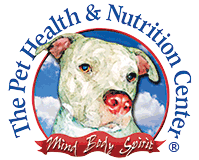Is Kibble Pet Food a Good Choice for My Dog or Cat?
Those that have worked with us know that we are whole food proponents. Meaning that we prefer to get nutrients from real, whole foods that haven’t been heavily processed. Our belief in how dogs and cats should be fed isn’t just an ideology, but is rooted in real facts.
Kibble (dry) pet foods have concerns that can affect the health of your canine or feline, and you should be aware of these when you make the decision on how to feed your animal. Several of these health concerns with processed, kibble pet food are listed below.
Stomach Acidity - Gastric cells lining the stomach are stimulated to secrete hydrochloric acid that helps convert the precursor enzyme pepsinogen into the protease enzyme pepsin that begins the breakdown of proteins. The issue with processed foods like kibble is that they can reduce the acidity of the gut interfering with the break down of proteins. This can lead to digestive issues, lean muscle loss and inflammation in the digestive tract over time and related conditions such as food sensitivities, acid reflux, allergies, and inflammatory bowel disorders.
Poor Quality Nutrients - Processed pet foods are generally formulated with shelf life and profit in mind. The cooking and drying of these foods allows them to be stored on shelves for long periods that leads to the loss of important nutrients. Poor quality ingredients can be hidden behind flashy, misleading advertising. Flavor enhancers are added to get dogs and cats to eat pet food that they would not otherwise consider to be food.
High Carb / Glycemic - Most commercial dry pet foods are based on high-glycemic, genetically modified grains and starches that have no place in your pet's diet. Surprisingly, many grain-free dry foods have a higher glycemic index than regular pet foods due to excessive amounts of potatoes, peas, lentils or tapioca included in the formulas. Carbs break down into sugar that fuels conditions such as diabetes, obesity and cancer.
Bad for Teeth - Kibble pet food sticks to your dog or cat’s teeth like potato chips to your teeth. Raw diets help control tartar because meat contains natural enzymes and raw food doesn’t stick to teeth like starchy kibble. Even cooked, whole food diets are much preferred to kibble for oral health.
History of Recalls - Processed kibble pet foods have a long history of recalls. Kibble pet foods have sickened numerous dogs and cats over the years due to contaminated glutens, vitamin D toxicity, and other causes that far exceed those for prepared raw or cooked pet foods.
Take a few minutes to read our articles How to Feed Your Dog or How to Feed Your Cat for more information on how to provide your pets with a healthier, whole food diet.

